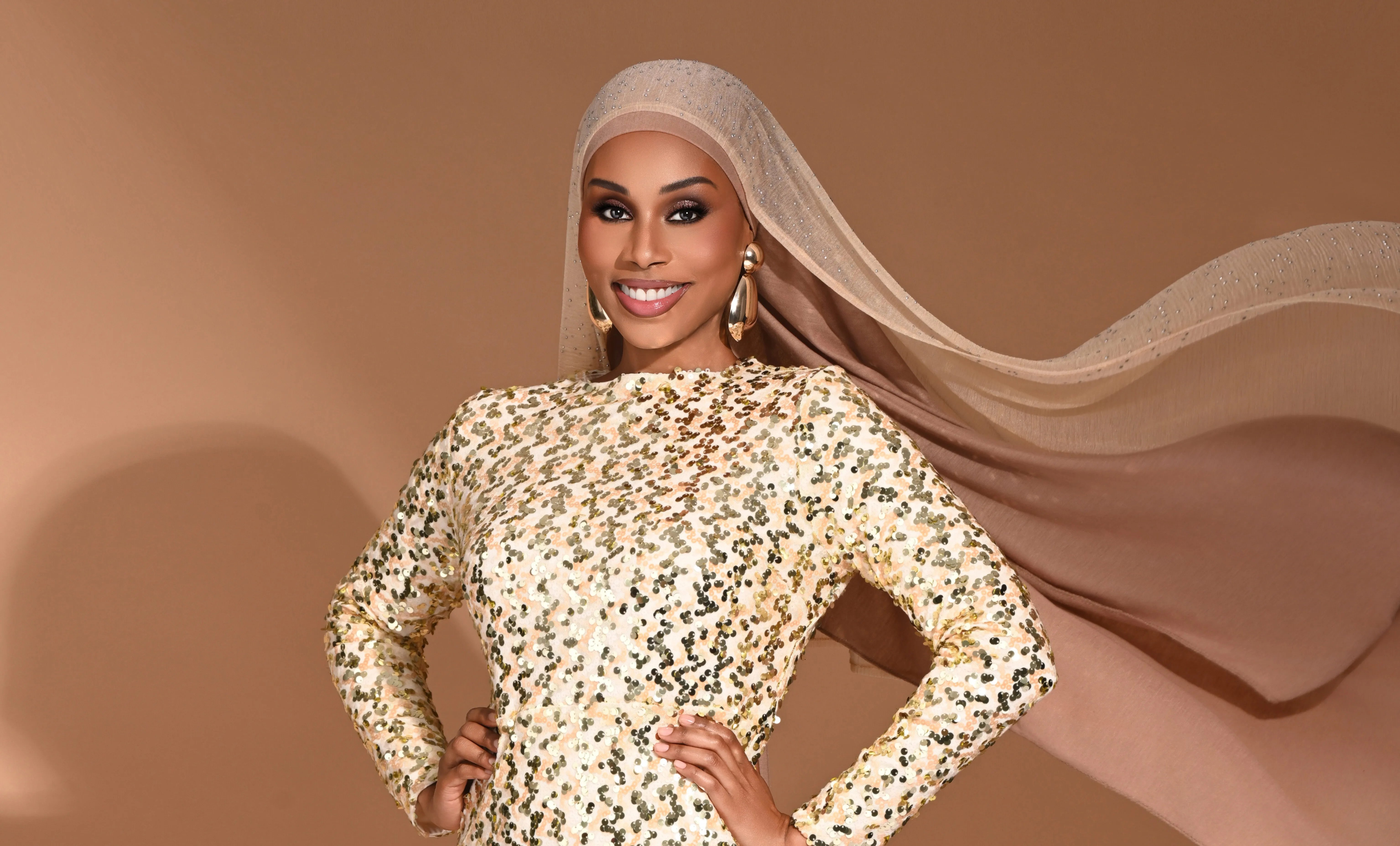When MonaLesa Brackett stepped onto the Miss USA stage in her hijab and burkini, she was rewriting the assumptions placed on Black women, Muslim women, and women who dare to bloom later than the world expects. At 36, the Brooklyn native made history as Miss New Hampshire USA 2025. She became the first visibly hijabi contestant to compete at Miss USA in modest swimwear, and the first to reach the Top 16.
But Brackett’s rise wasn’t sudden. It was years in the making. She was fueled by faith and an unshakable belief that her dreams weren’t negotiable.
“What I have learned is God has never forgotten me,” she said, reflecting on the years she thought her pageant journey was over.
When Miss USA removed its age limit, Brackett saw it as a divine nudge. She returned to the circuit, placed second runner-up at Miss New York USA, and later seized an open opportunity to represent New Hampshire and ultimately won the crown.
“Life has really been like a whirlwind,” Brackett admitted.
MonaLesa Brackett and Changing the Pageant Landscape
Her return to the stage had many asking if she would compete without her hijab. For Brackett, that wasn’t an option. Competing modestly didn’t stem from wanting a moment or making a statement. The hijab is simply her lifestyle.
“For me to compete in the swimsuit competition, I had to wear the swimsuit that I wear, which is a burkini,” she explained.
Still, she knew the assumptions she would face. In a culture that often equates modesty with meekness, she pushed back.
“People just assume because I’m covered that I’m hiding a flaw,” Brackett explained. “Modesty is beauty, and modesty also hides beauty.”
For Black women, especially Black Muslim women, her visibility matters. Brackett understands this deeply.
“They may think that a Muslim woman is only an Arab or maybe an East African, but no, we exist too,” she said.
By standing in her identity as a Black, Muslim, American, she challenges monolithic narratives about who belongs in faith, in pageantry, and in public life.
Brackett is equally adamant about agency.
“Muslim women are not oppressed,” she stated. “A Muslim is not a costume. I was a Muslim before I started wearing a hijab.”
She knows that society tends to misunderstand both Blackness and Islam, and she wants to set the record straight.
Brackett’s journey also exposes how much potential the pageant industry has overlooked. Once she became visibly Muslim, she noticed just how many women in the system quietly shared her faith. Brackett explained how many Muslim women approached her after her hijab debut and praised her for her bravery.
“The pageant system is missing out on a lot of money, a lot of sponsorship, a lot of contestants by not being more inclusive,” she said.
Ultimately, Brackett hopes her visibility pushes the industry toward fairness.
“If someone is qualified, allow them to get what they are qualified to have,” she said.
MonaLesa Brackett walked onto a stage and opened a door. As she continues her journey, she’s proving that representation is about expanding the room so that more women, in all their identities, can walk through it too.
